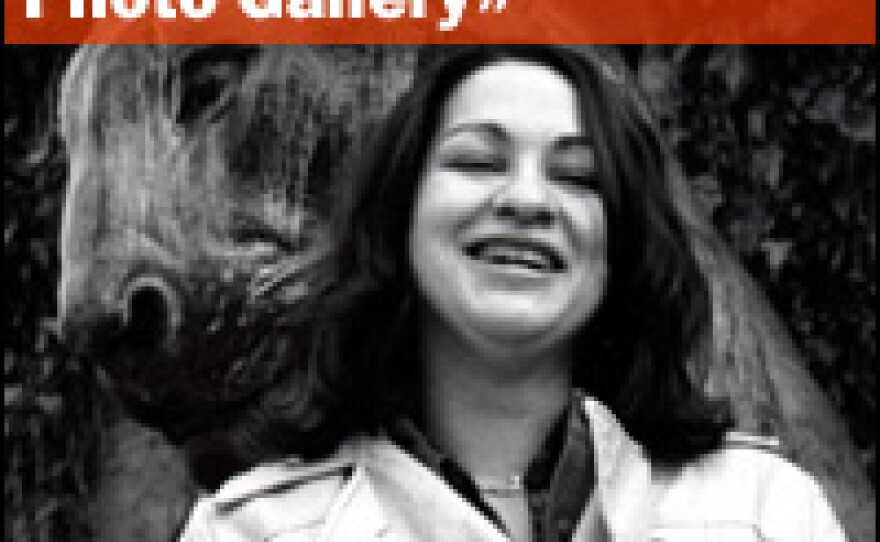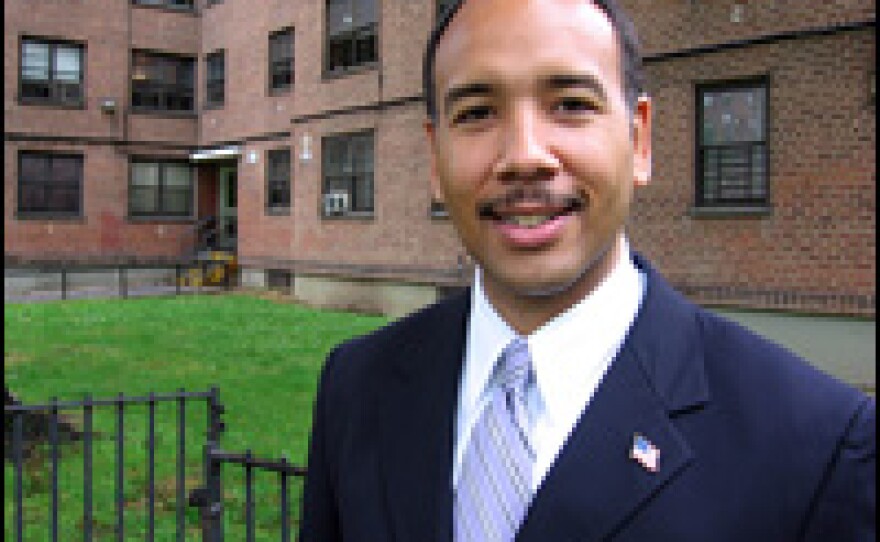

Sonia Sotomayor has called the stretch of Southern Boulevard in New York City's South Bronx the center of her childhood universe. She came here to eat Puerto Rican snow cones and see Spanish movies. She and her cousins sat at the window in her grandmother's apartment and made faces at the passengers on the elevated No. 5 train.
Sotomayor has said she never thought of herself as a minority back then because most of the neighborhood was Hispanic. She has called herself "Nuyorican" — a term derived from blending the words "New York" and "Puerto Rican."
Bronx Borough president Ruben Diaz Jr. is also of Puerto Rican heritage. He was raised 20 years later in the same public housing complex as Sotomayor. He says her generation had it better.
"Maybe when you had a rumble, somebody may bring a knife. That totally changed by the time I was a teenager here," Diaz says.
He says other Latinos and African-Americans moved in, and turf wars gave way to the crack epidemic. A few blocks away is the spot where, in 1999, four police officers gunned down Amadou Diallo, an unarmed African immigrant. All four officers were acquitted.
Diaz is proud that this area is now rebounding, but he says a deep distrust remains.
"People here feel like the judicial system doesn't always work for them. Even more so, they feel that most of the time, that it works against them," Diaz says. "So could you imagine how big that is — a young lady who comes from these developments who is now going to pass judgment with eight other people for the whole United States?"
Another Planet
Down in New York's Lower East Side, the Grand Street Settlement is a place for elderly Latino men to come for free meals and a game of dominos. It also has subsidized day care, after-school programs and training classes. The settlement's director, Margarita Rosa, represents another connection to Sotomayor: Rosa knew Sotomayor when they were both students at Princeton University.
Rosa was a junior when Sotomayor was a freshman, and she says for both of them, moving from New York to Princeton was like going to another planet.
They were among just a handful of Hispanic students at the elite university in the early years of affirmative action. They were females at an institution that had just gone coed; Catholics where most were not; low-income scholarship students where many came from privilege.
Sotomayor has said Princeton changed her. But in that era of civil rights activism, Rosa says Princeton's Latino pioneers decided they would also bring change to the institution.
"We set out to make our presence felt and the issues of our communities known," Rosa says.
Sotomayor joined a Puerto Rican student group. She and others sued Princeton, pushing it to hire Hispanic faculty. They lobbied one professor to teach a course on Puerto Rican history. Rosa says the ideals of social justice that motivated many of the students — including, she believes, Sotomayor — carried over into their professional lives.
"We really felt, at least I did, that I wanted my life to be about something other than just myself and the size of my bank account, that I wanted to leave a mark, improve conditions for life for the disadvantaged, some who were like me, and others who aren't like me," Rosa says.
Latino Justice
Sotomayor has spoken frequently of her duty to give back to the community, and she has been an active board member for civic groups serving low-income minorities. For 12 years, she was on the board of the Puerto Rican Legal Defense and Education Fund, now known as Latino Justice.
"We brought the dramatic case that stopped New York City from holding its city council elections in 1981," says Cesar Perales, the group's president.
Perales says while Sotomayor was there, the group argued that New York's district lines were racially gerrymandered. The courts agreed, and New York redrew its districts.
"This time, lines were much more fair and did not discriminate, and, yes, more minorities were elected to the council than there had been in the past," Perales says.
In a speech in 1998, Sotomayor said America has a conflicted attitude toward diversity — embracing it on one hand yet insisting people live in a race-blind way. This, she said, produces a "constant source of tension" and means people of color must band together to promote change.
Juan Cartagena is another former colleague at the legal defense fund.
"Sonia's elevation to the court would be an incredible way to demonstrate that a person who embraces that identity doesn't let go of it — that that diversity speaks to and informs all of her life decisions," Cartagena says.
Cartagena and others say Sotomayor is grounded, unpretentious and not one to forget where she came from.
A week ago, Rosa invited Sotomayor to a party for her daughter, not expecting she'd be able to make it. But she did.
"And in her inimitable fashion, she greeted every member of staff, the bartender, the person serving the food, the man who was doing security," Rosa says.
And then the staff all posed for photos with the woman who may soon become, by some measures, the most powerful Hispanic in the nation.
Copyright 2022 NPR. To see more, visit https://www.npr.org. 9(MDAzMjM2NDYzMDEyMzc1Njk5NjAxNzY3OQ001))






